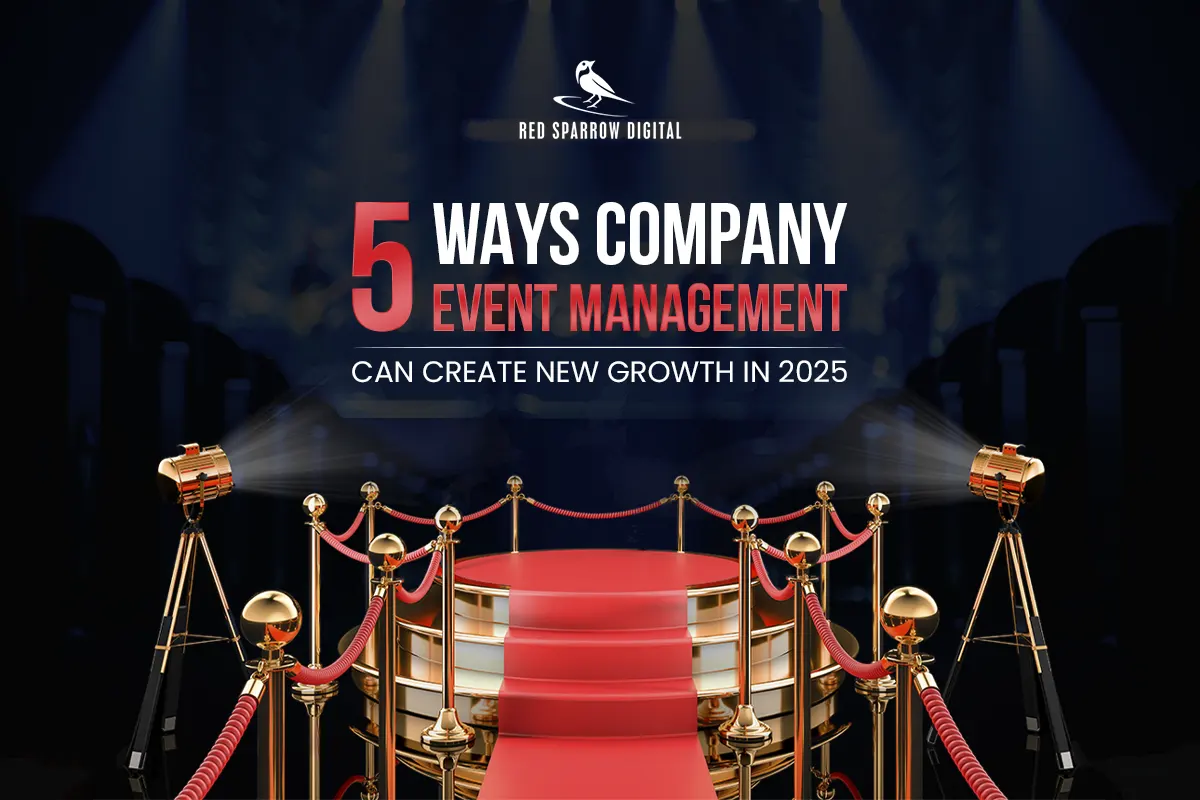
The event management industry in Bangladesh faced revenue losses of up to Tk 1,800 crore in 2020. Due to the spread of COVID-19, the industry slowed down, with many event management companies facing bankruptcy. However, by 2023, the industry started to recover, but the decline and its consequences in corporate and social environments highlighted the importance of hosting events.
Whether you’re hiring an event management company in Bangladesh or arranging events in-house, this blog will be helpful. Keep reading to learn five ways a company can use events to create growth in 2025.
5 Ways Team-Building Events Can Lead to Growth
Employees are tired of virtual meetings and now want in-person, live events to build camaraderie with their coworkers and network to climb the corporate ladder. With the meeting industry losing around $30 billion during the COVID-19 pandemic, it's time for a significant shift to improve the industry and corporate culture.
1. Corporate Events Increase Company Morale:
Office events impact employees’ overall mental and physical wellness. Improved morale means more confidence and friendliness among employees. This can help break the ice for new employees and foster better relationships. It can also reduce conflicts, saving many trips to HR. Employees will become more engaged, motivating them to work and contribute more. Issues like low productivity and burnout will be less of a threat to the company.
Increasing the retention rate is a core goal for many employers. Why? Replacing an employee can cost more than the salary of the person being replaced. Recruiting talent requires time and energy, costing the company money. There's also the loss of practical knowledge, unexpected delays, and other expenses.
In addition, seeing other employees leave for companies with younger and more engaging cultures can demotivate those who stay. Social media platforms like LinkedIn allow employees to see former coworkers enjoying better work environments, which can create resentment toward management.
By creating an engaging environment with events, the company can maintain profitability, which can lead to attracting new talent and supporting overall company growth.
2. Investing in Employee Engagement Encourages Retention
According to TinyPulse, employees who don’t feel valued are 34% more likely to leave their job within a year. This applies whether you're a large corporation or a small business. Employee retention directly impacts profitability, so it's essential to make employees feel heard and valued.
Events that allow employees to speak, voice their opinions, and collaborate with others motivate them to contribute more. For example, many employers give out "Employee of the Month" awards or other acknowledgments for meeting monthly or quarterly KPIs. Receiving that recognition at an event where coworkers cheer and congratulate them reinforces a sense of belonging and encourages continued commitment.
Events can contribute to a positive work culture by making employees feel supported by their employers. They also present networking opportunities with superiors outside their departments, offering insights and skills that might not be accessible otherwise. A survey by the American Psychological Association (APA) shows that employees who are recognized by their employers feel more valued, leading to better physical and mental health, as well as increased engagement, satisfaction, and motivation.
3. Encourage Work-Life Balance
The proverb "all work and no play makes Jack a dull boy" still holds true. Well-planned events promote team building, engagement, and enjoyment. According to the Harvard Business Review, when employers support work-life balance through corporate events, it enhances productivity, increases employee retention, and improves overall well-being.
Providing opportunities for employees to connect with peers and share fun experiences supports work-life balance. This helps employees align with the company's vision and understand the professional and personal goals of their coworkers. Collaboration becomes easier when there is mutual understanding and shared experiences.
The COVID-19 lockdown highlighted the importance of being prepared for remote and hybrid work settings. The challenges of sudden remote work can be mitigated if employees have built strong connections through in-person events. This foundation supports collaboration, even when working remotely, and can create new growth opportunities for the company.
4. Humans Are Social Creatures
According to the National Institute of Health, human beings are inherently social. We crave interaction and connection. These interactions become more meaningful when events are memorable and provide opportunities for knowledge sharing. This leads to stronger working relationships, building trust and fostering support among employees.
During the pandemic, many employees reported feeling lonely and depressed due to isolation and burnout. This sense of disconnection left employees feeling "stuck" without the ability to interact with their peers in person. Hence, employees genuinely want to connect with their coworkers, and providing these opportunities can improve workplace relationships and overall job satisfaction.
5. Corporate Events Can Improve Employee Attitudes
Corporate events don't always need to focus on seminars, reports, and networking. Workshops that upskill employees contribute to professional growth while creating a more positive relationship with the company. These events encourage employees to align with company goals and understand their role in achieving success.
Senior leaders can engage with junior employees through one-on-one interactions and model a growth mindset, encouraging others to adopt the same attitude. This can inspire less experienced employees to pursue their goals more effectively and contribute to the company's growth.
Events that focus on innovation and professional development help employees set realistic, achievable goals. This mindset can drive both individual and company-wide growth.
The Benefits Are Ongoing—When Done Right
Investing in corporate events means investing in employee well-being. This approach is viewed positively by both internal teams and external audiences. However, the benefits discussed can only be achieved when events are planned effectively.
Hiring a reputable event management company can be a wise investment if your company lacks the expertise and resources to organize memorable events. Alternatively, forming an internal event planning committee can create opportunities for bonding through smaller gatherings. Both approaches offer benefits, and as long as employees feel valued, growth opportunities will continue to emerge.



